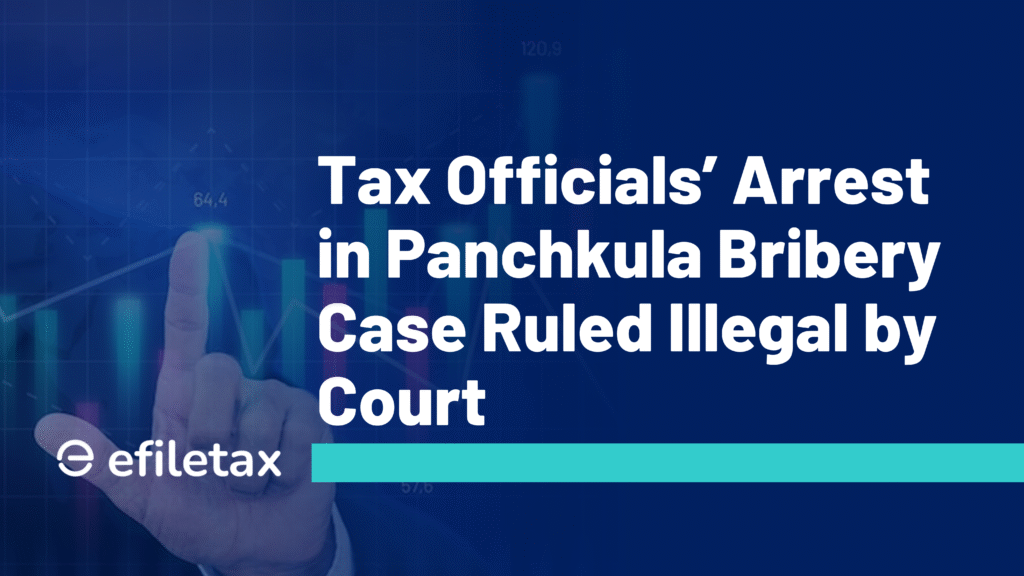
Tax Official Arrest Declared Illegal What the Panchkula Court Said
In a major development, a Panchkula court has ruled that the arrest of two tax officials in a bribery case was illegal. The incident, involving alleged bribe demands from a taxpayer, has brought fresh attention to procedural safeguards in GST law, and the rights of government officials during corruption probes.
The ruling has significant implications for both taxpayers and enforcement agencies under the GST regime.
What Was the Bribery Allegation?
According to reports, two officers from the Excise and Taxation Department of Haryana were arrested by the State Vigilance Bureau on charges of demanding a bribe of ₹3 lakh from a taxpayer for settling a pending GST issue.
However, the court found that:
- The arrest lacked prior sanction under Section 19 of the Prevention of Corruption Act.
- The arresting agency did not follow due process.
- There was no immediate threat or destruction of evidence to justify an arrest without prior approval.
Key Legal Issue: Section 19 of the Prevention of Corruption Act
Under Section 19(1) of the Prevention of Corruption Act, no court shall take cognizance of a corruption offence by a public servant without prior sanction from the competent authority.
In this case, the court ruled that:
“The arrest violated mandatory legal safeguards provided under Section 19… rendering the action null and void.”
This mirrors rulings in prior Supreme Court cases like Subramanian Swamy v. Manmohan Singh, which emphasized the importance of sanction before prosecution.
What This Means for Taxpayers and Officers
For Taxpayers:
- Taxpayers must still report bribery attempts.
- Use official channels like the CBI portal or state vigilance hotlines.
- Document evidence clearly and seek legal counsel.
For Officers:
- Enforcement agencies must seek permission before arrests.
- Public servants enjoy certain legal protections unless caught red-handed.
Expert View: Safeguards Must Not Be Abused
Chartered Accountant A.K. Sharma, who regularly advises on departmental cases, noted:
“While sanction requirements protect honest officers, they shouldn’t become a shield for those misusing power. Balanced enforcement is key.”
What GST Law Says About Departmental Proceedings
Under the CGST Act:
- Section 122–138 deal with offences, penalties, and prosecution.
- Section 132 prescribes arrest powers, but usually for taxpayers, not officers.
- Departmental officers are governed by state civil service rules and vigilance frameworks.
Summary
A Panchkula court ruled the arrest of two Haryana tax officials in a ₹3 lakh bribery case as illegal due to lack of prior sanction under the Prevention of Corruption Act.
Frequently Asked Questions (FAQs)
Q1. Can GST officers be arrested without notice?
Not if they’re public servants and the case falls under the Prevention of Corruption Act. Prior sanction is mandatory.
Q2. How can taxpayers report a bribe demand?
Use the CVC portal, state vigilance bureau, or file a complaint with documented evidence.
Q3. Does this affect taxpayer prosecution in GST?
No. Taxpayers can still be arrested for serious offences under Section 132 without prior sanction.
Need Help With GST Compliance?
Stay protected, stay compliant. Whether you’re a business owner, tax consultant, or professional — Efiletax helps you file returns, reply to notices, and handle audits with confidence.